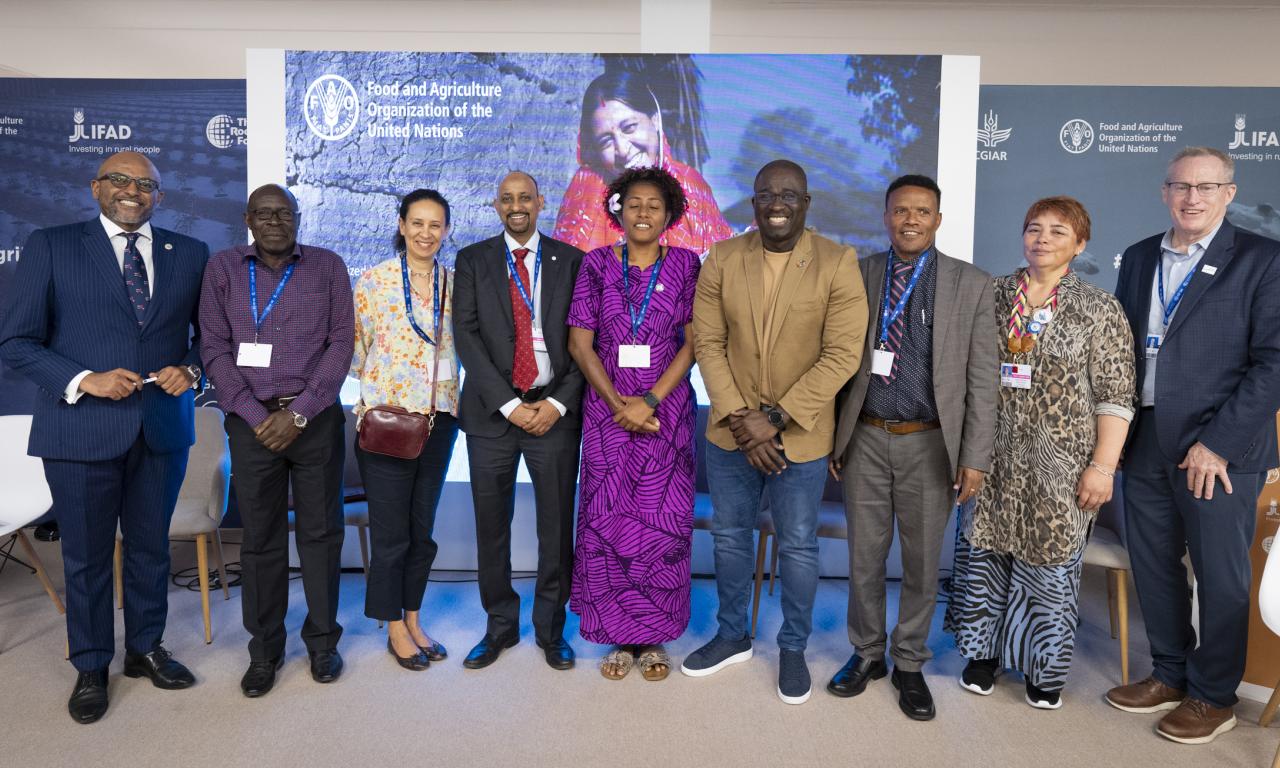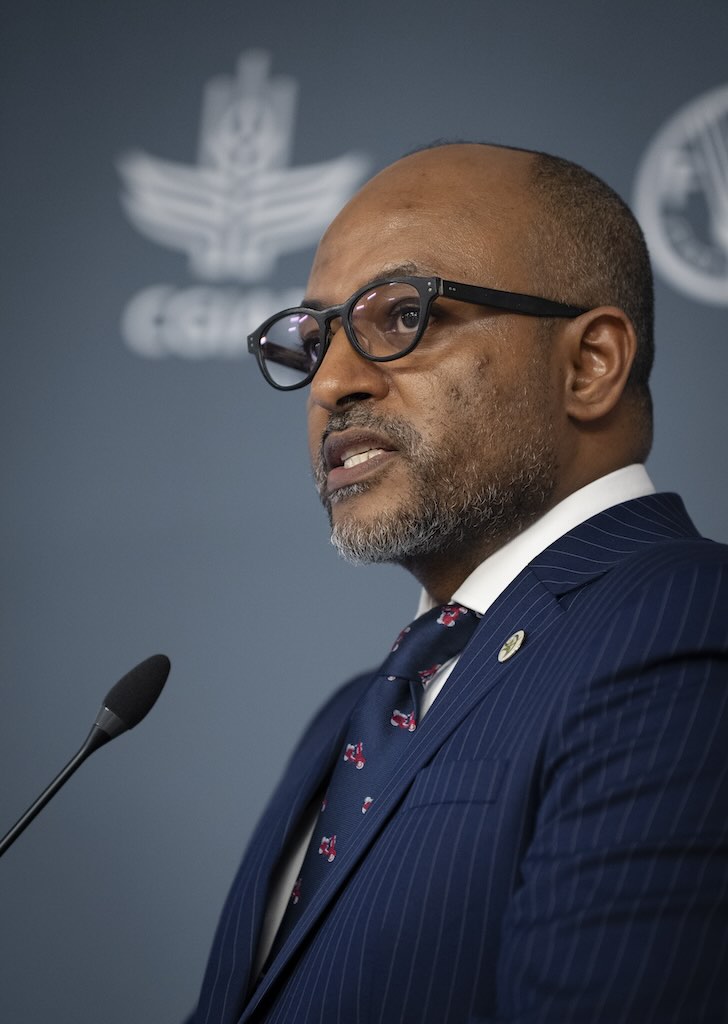
- Less than 30% of aquatic food producing countries have sought adaptation finance, highlighting a critical gap in resources for climate resilience.
- Sustainable practices in fisheries and aquaculture offer promising solutions for reducing emissions and mitigating climate change.
- Regional and community level initiatives showcase practical steps towards building resilience in aquatic food systems and the communities that rely on them.
Communities dependant on aquatic foods are some of the most vulnerable to the impacts of climate change.
A recent side event at COP28, Avoiding the perfect storm: Enabling aquatic foods climate solutions through policy, science and finance, focused on these communities, and shed light on the pathways to strengthening these communities’ resilience. The session, moderated by WorldFish Director-General Essam Mohammed, brought together experts, policymakers, and community representatives, offering a multifaceted view of the challenges and opportunities in aquatic food systems.
Climate Vulnerability and the Quest for Adaptation Finance
Less than 30% of countries dependent on aquatic food production have sought adaptation finance, a stark indicator of the challenges faced in accessing resources to bolster climate resilience. This gap in resource mobilization underscores the need for increased capacity and awareness, as well as simplified pathways for accessing adaptation finance. The session highlighted that addressing these issues is not just about environmental sustainability but also about ensuring food and nutrition security and combating poverty.
Aquatic food systems, notably fisheries and aquaculture, are among the most affected by climate change. However, they also hold potential solutions. As Essam Mohammed pointed out in the session, restoring fish stocks could mitigate an estimated 1.6 billion tonnes of carbon emissions annually. Moreover, sustainable practices in fish farming have shown a significant reduction in greenhouse gas emissions, placing aquatic foods on a low emissions pathway.
Policy, Science, and Finance
The session emphasized the need for a coordinated approach involving policy, science, and finance. By aligning these areas, we can create resilient aquatic food systems that support communities, biodiversity, and the global fight against climate change. This approach is crucial to enhancing people's ability to predict, adapt, and thrive amidst climate uncertainties.
From government and regional body perspectives, investing in aquatic food systems is not just a climate action but a step towards social justice and shared prosperity. In Somalia, Hassan Haji from Fisheries and Blue Economy shared how the government is exploring how fishing can sustain communities amidst climate pressures. Their strategies include 'Fish for Emergencies' and 'Fish for Development', aimed at enhancing food security and resilience.
Echete Dejen from the Intergovernmental Authority for Development (IGAD) highlighted the compounded effects of climate change, including drought and desertification. Their initiatives focus on drought sustainability and regional adaptation plans, showcasing the importance of collective action and regional policy development.
 Dr. Essam Yassin Mohammed moderated the side event at COP28. |
Health, Resilience, and Community Involvement
In the Caribbean, Donovan Cambell from the University of West Indies highlighted how the link between aquatic food systems and health is a focal point. With a high rate of non-communicable diseases (NCD's), the region sees aquatic foods as a pathway to healthier societies. The Caribbean is also deploying innovative insurance products for small-scale fishers, enhancing livelihood resilience.
In the Pacific, Talei Silibaravi explained how communities depend heavily on the ocean for food security. She also emphasized the need for adaptation finance and recognition of fishing communities' contributions to global food security.
Zoila Bustamante from the National Confederation of Fishermen of Chile (CONAPACH) highlighted a crucial message - change is happening at the grassroots level, and it's time for governments and global actors to step up. These communities are stewards of the environment, yet they bear the brunt of climate impacts.
Towards Resilient Aquatic Food Systems
The session was a powerful reminder that the quest for climate action is inherently a quest for social justice. By working collectively, involving communities in policymaking, and implementing innovative financing mechanisms, we can protect and enhance aquatic food systems and realize a future where aquatic food systems contribute to a healthier, more equitable, and sustainable world.
When communities, policy-makers, civil society groups, regional and other agencies work together, we can realise shared prosperity for all through sustainable and equitable aquatic food systems, under a changing climate - WorldFish Director-General Essam Yassin Mohammed.
Watch the video of the side event here.
